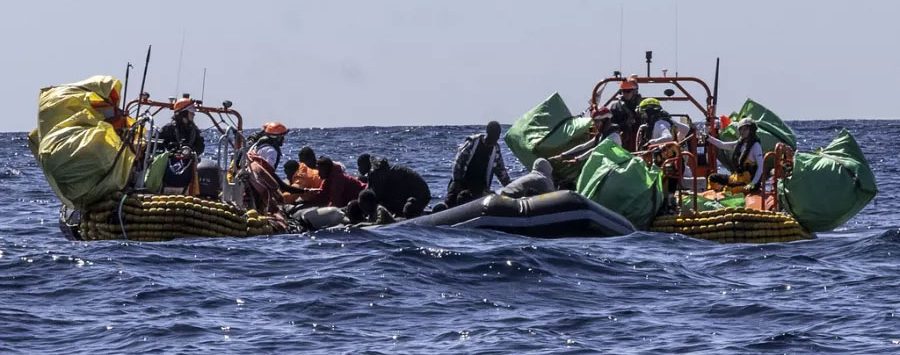Queer Cameroon asylum seeker dies in Mediterranean crossing
LGBTQ rights activist and journalist in Cameroon.
LGBT asylum seekers risk the perilous crossing as official routes to Europe are often closed

This article, based on information from LGBTI rights activists in Cameroon, uses pseudonyms to protect people’s security.
Ali (pseudonym), a 25-year-old Cameroonian belonging to the LGBTI community, felt unsafe in his home country due to his sexual orientation. In Cameroon, same-sex sexual relations are criminalized. He sought refuge in Europe, but faced with several visa refusals from European countries, he decided to take unofficial routes to the continent, and made his way to Tunisia, where he would begin the risky journey across the Mediterranean Sea.
On March 17, in Sfax, Tunisia, Ali and 55 other migrants set sail aboard a flimsy dinghy. But after only a few hours at sea, the boat began to take on water. When rescuers reached the boat, about twenty kilometers from the Italian island of Lampedusa, only ten survivors remained. Six bodies were also recovered. The other 39 people disappeared into the vastness of the Mediterranean, including Ali.
This latest story highlights a tragedy that is endlessly repeated along this dangerous migratory route. The day before this shipwreck, approximately 600 people were intercepted at sea by the Tunisian Coast Guard, and 18 lifeless bodies, including those of children, were found. Harrowing images shared on social media showed exhausted sub-Saharan asylum seekers, some clinging to buoys, others completely dehydrated. According to the International Organization for Migration, nearly 32,000 people have died or disappeared in the Mediterranean over the past decade, including at least 2,200 in 2024 alone, often amidst general indifference.
Myar (pseudonym), a friend of Ali, says he heard of the disaster through other migrants in Tunisia.
“I received the information through an acquaintance in Tunisia who was also part of the adventure. He had missed the departure and was therefore not part of this dark adventure. We are distraught and deeply shocked,” he says.
To address this situation, IOM is urging Frontex, the European border and coast guard agency, to implement concrete measures to protect the lives of exiles. In an open letter, the organization calls on Frontex to use its aerial surveillance resources (planes and drones) to systematically transmit the location of boats in distress to NGOs, send emergency alerts quickly, and guarantee rapid and appropriate assistance.
“As an institution made up of public officials who claim to ‘care about people,’ it is time for Frontex to unequivocally demonstrate its willingness to act humanely,” the statement says.





Surviving in silence: Qtalk provides guidance for trans woman in northern Nigeria